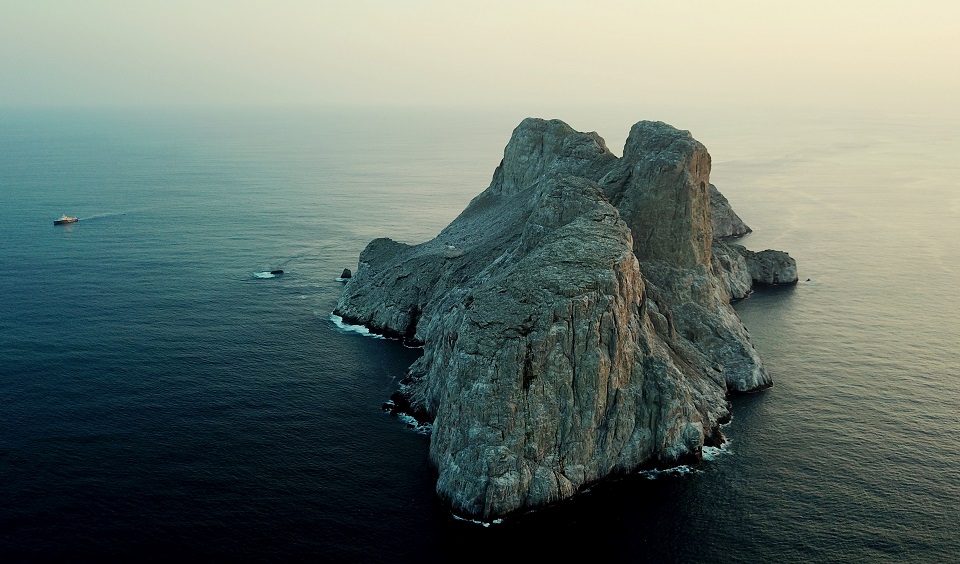World Class: Colombia’s Malpelo marine sanctuary is the latest addition to the IUCN Green List of the best protected areas on the planet
The Malpelo Fauna and Flora Sanctuary in Colombia,on the UNESCO World Heritage List since 2006, is widely recognised as one of the top diving sites in the world. The sanctuary has now been admitted to the IUCN Green List, the pre-eminent global standard for best practices in protected areas.

Photo: IUCN Green List
The International Union for Conservation of Nature (IUCN) has admitted Colombia’s Malpelo Fauna and Flora Sanctuary to the IUCN Green List of Protected and Conserved Areas - the first global standard to recognise best practice in protected areas. The IUCN Green List measures the effectiveness of protected areas, rewards the best sites and provides an incentive for sites around the world to improve their management. Green-listed sites are certified as being effectively managed and fairly governed, with a positive impact on people and nature.
“In these turbulent times of the COVID-19 pandemic and its impacts on protected and conserved areas and communities around the world, the Green-listing of Malpelo Fauna and Flora Sanctuary recognises the inspiration and dedication of its hard-working staff and stakeholders. We congratulate Malpelo on this significant achievement that underscores how important protected areas are for creating a resilient society while protecting nature.” - Trevor Sandwith, Director, IUCN Global Protected Areas Programme
Malpelo Fauna and Flora Sanctuary is the ninth largest marine protected area in the world and a natural World Heritage Site, and also an Important Bird Area. It is recognised as a Global Ocean Refuge as well as a Mission Blue Hotspot. This vast marine site is the largest no-fishing zone in the Eastern Tropical Pacific, providing a critical habitat for internationally threatened marine species, and is a major source of nutrients resulting in large aggregations of marine biodiversity.
Known as one of the top diving sites in the world, its spectacular natural beauty and remote location support an undisturbed environment for important populations of large predators and pelagic species including aggregations of over 200 hammerhead sharks and over 1,000 silky sharks, while whale sharks and tuna have been recorded. It is a haven for giant grouper and billfish and is also one of the few places in the world with confirmed sightings of the deepwater short-nosed ragged-toothed shark.. Malpelo Fauna and Flora Sanctuary belongs to the Eastern Tropical Pacific Marine Corridor, a marine conservation network.
The evaluation of Malpeloagainst the IUCN Green List Standard was supported by the “Protected Area Solutions for Biodiversity and Climate Change: Achieving quality elements of Aichi Target 11” Project led by IUCN with support from Germany’s Federal Ministry for the Environment, Nature Conservation and Nuclear Safety (BMU) under the International Climate Initiative (IKI).
With the addition of Malpelo, there are now 47 sites on the IUCN Green List in 14 countries, including eight other protected areas in Latin America and the Caribbean. Along with over 500 candidate sites in over 50 countries around the world, Malpelo joins a global community of protected and conserved areas committed to successful and fair nature conservation in our planet’s most precious places.
However, Malpelo cannot rest on its laurels. The IUCN Green List certificate is for ongoing successful efforts, and can be reviewed and even rescinded if there are alerts or significant challenges that affect the site. The management authority, Parques Nacionales Naturales de Colombia is doing an outstanding job, but threats continue to mount, and fishing pressure in the surrounding seas will likely intensify. The IUCN Green List certificate will help justify continuing management efforts and help persuade government and other supporters to stay on board with Malpelo’s conservation journey far into the future.
The IUCN Green List also helps measure and accelerate progress towards the UN Aichi Target 11 and Sustainable Development Goals 14 and 15, which include the global biodiversity targets of 17% of terrestrial and 10% of marine areas to be protected, effectively conserved, and fairly managed by 2020. While the world is on track to meet the coverage aspect of Aichi Target 11, the ‘effectiveness’ aspect is still far from being reached. Sites on the IUCN Green List have demonstrated excellence based on a rigorous assessment against the IUCN Green List Standard of 17 criteria structured in four components: good governance, sound design and planning, effective management, and successful conservation outcomes.
About the IUCN Green List
The IUCN Green List of Protected and Conserved Areas initiative is increasing and recognising the number of Protected and Conserved Areas globally, that are fairly governed and effectively managed to achieve successful conservation outcomes.
At the heart of the IUCN Green List of Protected and Conserved Areas (IUCN Green List for short) initiative is the first global standard of best practice for area-based conservation. It is a certification system for protected and conserved areas – national parks, natural World Heritage sites, community conserved areas, nature reserves – that are evaluated to be effectively managed and fairly governed according to this global standard.
The full list of sites on the IUCN Green List is available here.
The IUCN Global Protected Areas Programme can be contacted by email at greenlist@iucn.org



